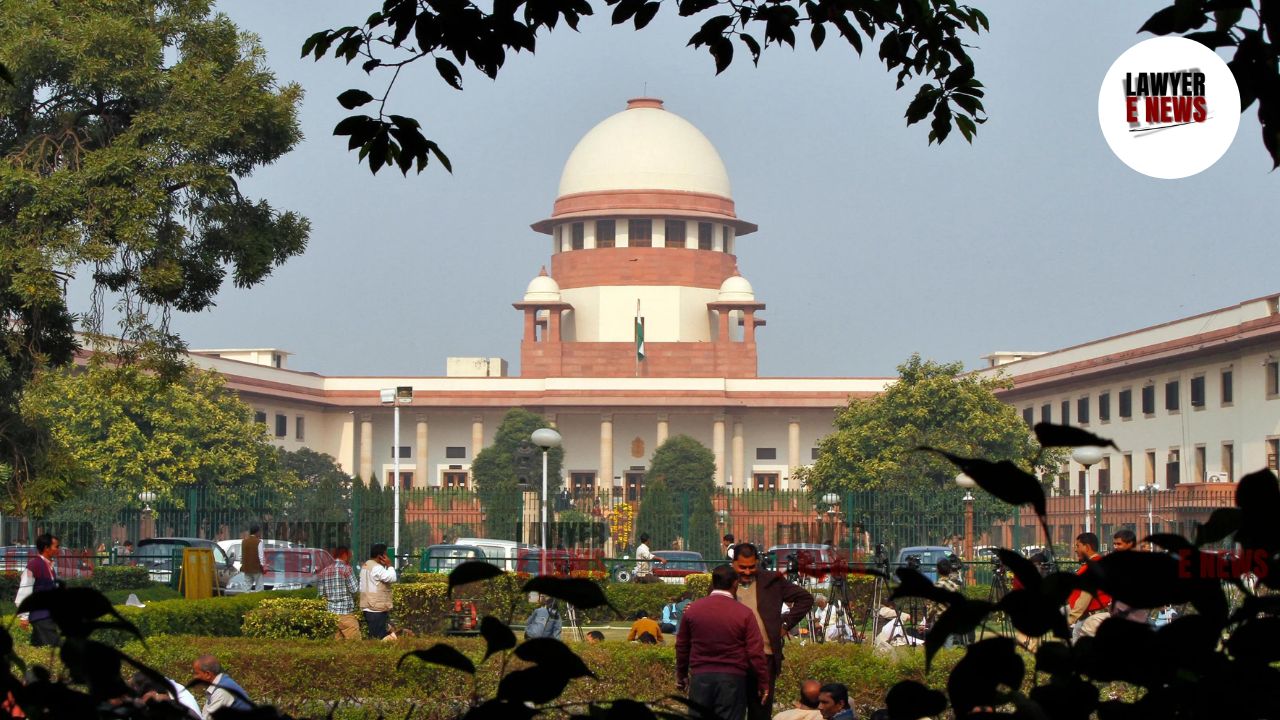-
by Admin
16 February 2026 1:47 PM



Pension is a Right, Not a Charity - Supreme Court has ruled that employees appointed under a government scheme are entitled to pension benefits if they were governed by the same service rules as regular government employees. Dismissing the Uttar Pradesh Government’s appeal against the Allahabad High Court’s judgment, the Court reaffirmed that pension is a vested right and cannot be denied based on technicalities or delay. The decision comes as a significant relief for retired employees of the Antar Gramin Sadak Nirman Yojana, ensuring that their long service is recognized through post-retirement benefits.
Delivering the judgment in State of Uttar Pradesh & Anr. v. Dinesh Kumar Sharma & Ors., a bench comprising Justice Abhay S. Oka and Justice Augustine George Masih upheld the High Court’s ruling, which granted pensionary benefits to employees under the scheme. The Court held that once a government policy recognizes pension eligibility, the State cannot later deny benefits under the guise of financial constraints or delay.
Employees Denied Pension Despite Government's Own Orders Recognizing Their Service
The dispute arose when employees appointed under the Antar Gramin Sadak Nirman Yojana between 1969 and 1982 approached the High Court seeking pension benefits. They argued that although they were initially appointed on a temporary basis, subsequent government orders extended various service benefits to them, aligning their terms with those of regular government employees in the Cane Development Department of Uttar Pradesh.
The government had issued a decision on September 29, 1997, allowing employees under the scheme to receive gratuity, pension, and other benefits, provided the financial burden was met through the scheme’s internal funds. This decision was later reaffirmed on November 12, 1997, when it was clarified that these employees would be governed by the same rules, regulations, and government orders as their counterparts in the Cane Development Department.
Despite these government decisions, the Sugar Cane Commissioner later issued an order on November 13, 2002, denying pension benefits to these employees. This forced the affected individuals to approach the Allahabad High Court, which ruled in their favor on May 18, 2016, holding that they were entitled to pension benefits like other government employees.
Supreme Court Rejects Government's Argument That Employees Were Temporary and Not Entitled to Pension
The Uttar Pradesh Government challenged the High Court’s ruling, arguing that the employees were temporary workers and had already availed benefits under the Contributory Provident Fund (CPF) scheme. It contended that since these employees withdrew their CPF dues upon retirement, they could not later claim pension benefits.
The Supreme Court dismissed these arguments, holding that pension is a right and not a discretionary benefit granted by the government. The Court observed that the employees were governed by the same service rules as regular government employees and had a legitimate expectation of receiving pension.
Justice Augustine George Masih, delivering the judgment, stated that "pension is not a charity or bounty but a rightful entitlement. The government cannot deny it on technicalities when its own decisions have extended pensionary benefits to the employees."
The Court rejected the argument that withdrawing CPF dues amounted to a waiver of pension rights, noting that the employees had no alternative but to accept CPF payments since pension was initially denied to them. The Court also held that employees had been continuously demanding pension and could not be faulted for the delay in approaching the court.
Supreme Court Allows Pension but Limits Arrears to Three Years
While upholding the High Court’s order granting pension benefits, the Supreme Court ruled that arrears of pension would be limited to three years prior to the filing of the writ petition. The Court clarified that claims for recurring benefits like pension do not expire due to delay but restricted the arrears to balance equities.
The judgment also permitted the Uttar Pradesh Government to deduct CPF amounts already received by the employees from the pension arrears payable to them. It directed the State to complete the pension disbursal process within one month and provide employees an additional two weeks to return any excess CPF amounts if required.
A Landmark Judgment Strengthening the Right to Pension for Government Employees
The Supreme Court’s ruling in State of Uttar Pradesh & Anr. v. Dinesh Kumar Sharma & Ors. reinforces the legal principle that pension is a fundamental right and cannot be arbitrarily denied to employees who have served under government-recognized schemes. The judgment ensures that employees working under temporary schemes but governed by government service rules are not left without retirement benefits.
By dismissing the government’s appeal and recognizing pension as an enforceable right, the Supreme Court has set a precedent that will protect thousands of retired employees from bureaucratic delays and unjustified denials of pensionary benefits.
Date of decision: 20/03/2025
